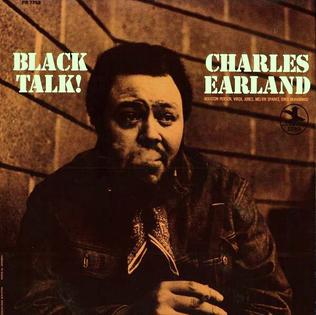Black Talk!
1970 studio album by Charles Earland From Wikipedia, the free encyclopedia
Black Talk! is an album by organist Charles Earland which was recorded in 1969 and released on the Prestige label.[1][2][3]
| Black Talk! | ||||
|---|---|---|---|---|
 | ||||
| Studio album by | ||||
| Released | 1970 | |||
| Recorded | December 15, 1969 | |||
| Studio | Van Gelder Studio, Englewood Cliffs, New Jersey | |||
| Genre | Jazz | |||
| Length | 38:26 | |||
| Label | Prestige PR 7758 | |||
| Producer | Bob Porter | |||
| Charles Earland chronology | ||||
| ||||
Reception
| Review scores | |
|---|---|
| Source | Rating |
| Allmusic | |
| The Rolling Stone Jazz Record Guide | |
| The Penguin Guide to Jazz Recordings | |
Allmusic awarded the album 5 stars with reviewer Scott Yanow calling it "one of the few successful examples of jazz musicians from the late '60s taking a few rock and pop songs and turning them into creative jazz" and stating "Fans of organ combos are advised to pick up this interesting set".[4]
The title track is also featured in the 1972 film and its respective soundtrack Fritz the Cat (film).
Track listing
All compositions by Charles Earland except where noted.
- "Black Talk" – 7:50
- "The Mighty Burner" – 3:04
- "Here Comes Charlie" – 8:15
- "Aquarius" (James Rado, Gerome Ragni, Galt MacDermot) – 8:00
- "More Today Than Yesterday" (Pat Upton) – 11:10
Personnel
- Charles Earland – organ
- Virgil Jones – trumpet
- Houston Person – tenor saxophone
- Melvin Sparks – guitar
- Idris Muhammad – drums
- Buddy Caldwell – congas (on tracks 2 & 5)
References
Wikiwand - on
Seamless Wikipedia browsing. On steroids.
